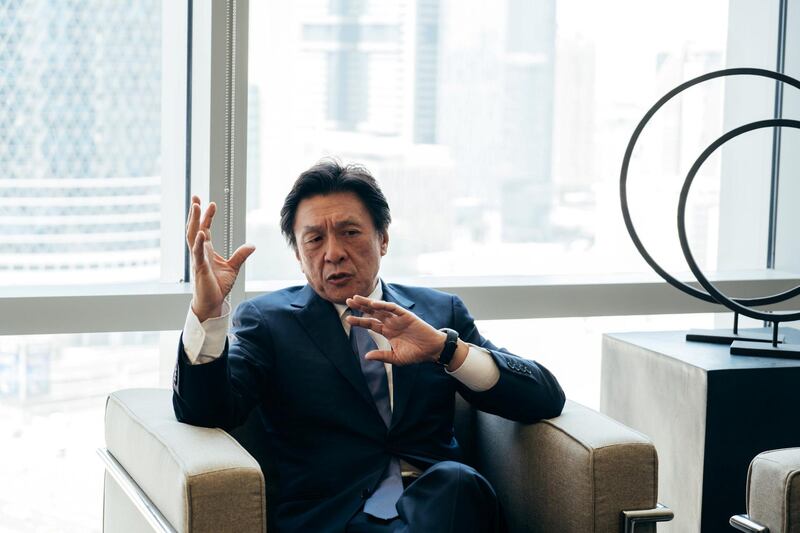AT Kearney, the US-based consultancy, is looking to solidify and expand its footprint in the Middle East and is open to acquisitions or partnerships to better serve its regional clients, its managing partner and chairman said on Sunday.
"It [The Middle East] is one of our fastest growing regions in terms of revenues, in terms of people and in terms of breadth and quality of our client relationships," Alex Liu, who took over the helm of the company in March told The National in an interview in Dubai. "I see no reason why we can't continue to be growing [regional operations] at a very fast rate."
Saudi Arabia, the world’s biggest oil exporter and the top Arab economy, is the “hot spot” for AT kearney and other global consulting players as the kingdom goes through unprecedented change. The firm, which maintains a presence in every country in the Middle East, is looking to enhance its capabilities to tap business opportunities available in the region, especially in Arabian Gulf states, where economic transformation sits on top of government agendas, he said.
One way of achieving that objective is through acquisitions of other consulting firms.
“I would say yes if there is a pocket of capability that make sense,” Mr Liu said, in reply to a question about potential acquisitons. “Clients need deep delivery. They want new and innovative approaches ….. some times we may not have all the capabilities so you either build it organically, [or] you acquire or partner with people to provide [it].”
AT Kearney had entertained a possible merger with rival Booz & Co in 2010, but talks failed. Booz was later acquired in 2014 by PwC and rebranded as Strategy&.
The energy-rich economies in the wider Middle East, particularly those in the GCC, which accounts for about a third of the world’s proven crude reserves, are trying to reduce their dependence on oil revenues and radically transform their sources of income by developing local non-oil industries.
_________________
Read more:
[ Will McKinsey help Lebanon chalk out a better economic model? ]
_________________
A fall in oil prices from the mid-2014 peak of $115 per barrel to below $30 a barrel in the first quarter of 2016 has forced privatisation of sectors such as health and education. Partial sale of state-owned entities, including companies such as Saudi Aramco, the world's biggest oil producer, are also part of the economic agenda as both government sand the private sector realign priorities according to new business realities in the lower oil price era.
Implementation of policies to bring about social and cultural changes including encouraging women’s participation in the economic activities are also afoot, opening new avenues of business for global consulting firms like AT Kearney.
Mr Liu said it is the right time to invest and expand in the region as national-building initiatives continue to provide incentive for such a move.
“We have typically invested ahead of demand in the market place so we have been here in the Middle East for quite some time,” he said. “I have a long-term bullish view of this market. We will continue to implement business plans that are consistent with that view point.”
The company currently serves the region through 300 personnel and assistance from teams from other regions. It is looking to hire more staff as business continues to boom, Gael Rouilloux, a partner at AT Kearney Middle East said.
“The only limit to our growth is the access to talent. The market is booming be it on the corporate side or government,” he said.
AT Kearney’s current client mix in the region is a “pretty good” balance of both private sector companies and government entities. The firm is working with some of the major companies in the region in telecommunications, oil and gas, utilities, renewables and petrochemicals sectors. It is also actively working with the governments on policy formulation and implementation projects, he noted.
AT Kearney has recently restructured its Middle East business, adding Africa to regional operations, Mr Liu noted.
“We have expanded the ambitions for the region to include Africa. It’s a different market but we have experience of working there,” he said. “We have a great deal of market knowledge and over time we will expand our footprint [in the continent] to reflect the need for more coverage.”







